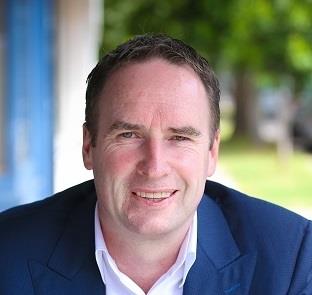answered
Q: I am moving to South Africa, but i have an investment property here im renting out, is there anything i can do to retain as much of my superannuation so that it doesnt dwindle down to nothing while i wait to be retirement age?? will i have to make contributions to a super there as well?
A: Hi Monique
I'm not a financial planner, but I really like Glenn's answer. Specifically in dealing with any potential surplus income from the rental property.
I can't offer any personal advice. However if you would like to discuss this with a Financial Planner in Perth before you leave, I'm more than happy to introduce you to a local planner. They have a lot of experience providing advice with clients moving between SA & AUS.
Cheers
Casey
answered
Q: On a commercial loan is it possible the same margin or line fee above the BBSW for the first 3 years be negotiated to roll into the following 3 years. I’m concerned that if we’ve been offered a margin of 3% for the 3 years, the bank can then bump it up to 5% after the first 3 years. Can the same margin be included in the agreement for 3x3 year loan agreement?
A: Hi Alistair
It sounds like you have what is commonly termed a "Market Rate" facility. A known benchmark rate, such as BBSW, plus a margin or line fee for the lender. Generally the Margin is fixed for the agreed term, with review or renewal at the end of the term.
Unlikely a lender would agree to a 3 x 3 facility, as they would want to review and adjust the Margin if they were unable to sustain a desired rate of return. The lender will want to review the facilities performance both in terms of you as the borrower, are you making good on repayments, and the loan as an income source, is it still profitable to offer the loan at a given rate.
As I tell many of my Commerical clients. While you may be concerned of uncertainty about what the lender may offer at the time of renewal. You should take this as an opportunity to perform the same kind of review. Is my lender performing? Is my lender offering me the best?
Commerical lending is becoming as competitive as home loans. If you’ve focused on growing your business's performance and made your payments on time. Then you will find that many lenders are keen to acquire your lending and banking needs. You should be upfront with your lender and let then know “YOU” are performing a review.
See what they have to offer and compare to other lenders in the market. It is a different product market to residential and a few more considerations. But a good Commerical Broker can get a range of offers and breakdown the complexity so it’s apples for apples.
Cheers
Casey
answered
Q: I have a property…market value $1.3M and loan is $420k. I was hoping to increase the loan to $700k and use the additional funds for a range of investment opportunities but the bank will only approve $100k. Income is not the issue, apparently cashout restrictions!!! What does this mean and will I come across the same problem if I go to refinance?
A: Hi Andrew
Yes many lenders have this restriction in place. However can be overcome if you can clearly demonstrate what the funds are being used for.
And not all lenders impose these restrictions. I do this regularly for business owners who are using equity as a smart way to restructure business funding. The same is applied to other forms of investment.
Happy to discuss with you in more detail.
Cheers
Casey
answered
Q: I'm looking to start a new company with two others. Our new accountant recommended that we use a unit trust as the business entity. The reasons being is that we have varied business billing amounts, frequency and scenarios so we will operating and managing cost centres within the company. The idea is that the unit trust is a distribution mechanism and we are operating like individual businesses within. Tax implications? Is this a weird business structure?
A: Hi Terrance
I couldn't comment on the tax implications. However from a business banking perspective this seems like a sound structure if each partner is operating as separate cost centres.
I think it's important for the partners to understand and agree among themselves how income is going to be treated to ensure everyone is happy. As the profits/equity of the unit trust are shared according to percentage of unit holding. If a partner with a 10% holding is generating 80% of the income, I doubt they would be happy with only 10% of the return. So I echo much of the same points the accounting professionals above have identified.
If the enterprise needed to raise funds in the future the structure wouldn't cause any real problems. Only requires a little more experience and understanding of the structure and flow of profits.
Cheers
Casey
answered
Q: I would like to start a business, helping restaurant owners renovate their shops. What tax deductions can the restaurant owners claim? Can they claim services on renovation? Can they claim tax deductions for the services I provide them?
A: Hi Susan. I specialise in business and commercial finance in the Perth North region. While I'm not an accountant, I can say I regularly see deductions related to similar expenses, within clients financial reports. We have even seen this included within accountant prepared forecasts, when organising funding for fit out projects in the past.
In a basic sense if the expense is related to an income generating activity, then generally it would be an allowable deductible expense for the business.
If you would really like to know the in and outs of the tax aspect. I can introduce to my accountant in Wangara. I work very closely with him for many shared clients. He would be more than happy to discuss this with you.
Cheers
Casey
answered
Q: My Home Loan has been on a fixed interest rate since I obtained it nearly 2yrs ago. This is due to expire in August and I need to decide to either remain on fixed or go to variable?
A: Hi Glenn.
Deciding whether to remain fixed or variable, should ultimately fall in line with 2 major points of consideration.
First how long you intend to keep the asset. Don't fix for period longer than you intend to keep it, especially if you intend to sell soon.
Second but more importantly is determining if a fixed rate benefits your mortgage strategy over the same period. Fixing part or all may provide benefit in affordability on a fixed or limited income. While at the same time could be potentially limiting if you have the ability or desire to paid down you mortgage much faster.
It would be beneficial to sit with a broker who has a strong understanding of budgeting strategies and ability to implement a mortgage plan.
Happy to discuss if you don't have someone suitable.
Cheers
Casey






